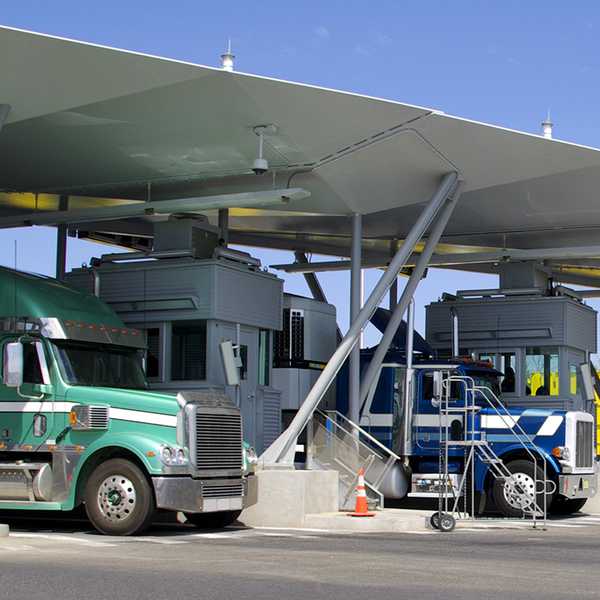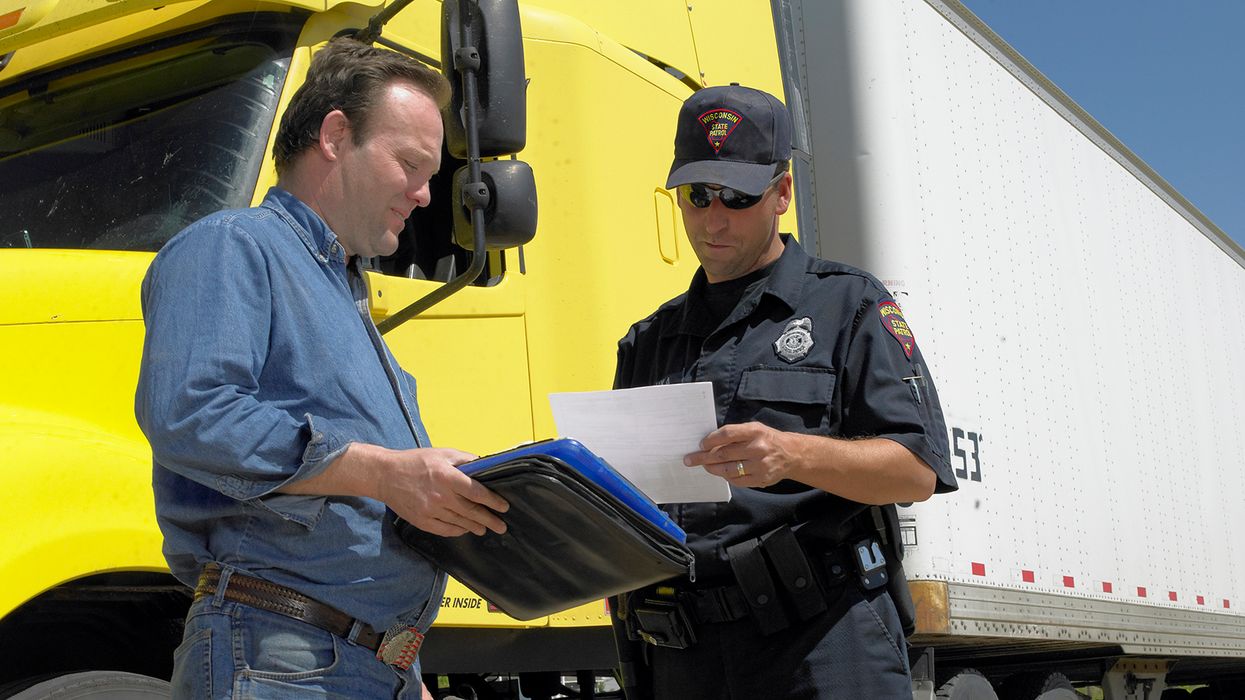Understanding Canada point-to-point trucking regulations
Canada’s trucking industry is a vital part of its economy, facilitating the movement of goods across vast distances. However, the regulations governing point-to-point trucking by foreign companies within Canada are complex and crucial for ensuring fair competition and safety. Let’s explore the main elements of cabotage and the regulations and give insight to help you avoid breaking the rules.
What is cabotage?
Cabotage is the reference to the transport of goods or passengers between two points within a country by a foreign operator. In the context of Canada, cabotage regulations are intended to protect the domestic trucking industry from foreign competition. According to the Canada Border Services Agency (CBSA), only Canadian-based carriers and drivers driving Canadian-licensed vehicles are allowed to make point-to-point deliveries of domestic goods within Canada. This means that U.S.-based trucks and trailers, even if they are used for cross border commercial transportation, cannot engage in domestic point-to-point movements within Canada.
Key regulations and requirements
- Canadian operators and vehicles: Only Canadian carriers using Canadian-registered vehicles are allowed to perform point-to-point deliveries within Canada. This regulation ensures that domestic carriers are not undercut by U.S. competitors who might have lower operating costs.
- U.S.-based equipment: U.S.-based trucks and trailers can enter Canada duty-free for cross border commercial transportation. However, this equipment is also restricted from performing domestic point-to-point deliveries. They can only transport goods that are part of a cross-border shipment, either entering or leaving Canada.
- Safety and compliance: All trucking operations within Canada, including U.S.-based operators coming into Canada, must comply with the federal and provincial safety regulations. This includes adherence to Canada’s Hours of Service and the Transportation of Dangerous Goods (TDG) Regulations, which prescribe safety standards and shipping requirements for hazardous materials.
- Documentation and reporting: Carriers must keep accurate records and documentation for all shipments. This includes bills of lading, customs declarations, and other relevant paperwork to demonstrate compliance with cabotage regulations and other legal requirements.
Implications for U.S. operators
U.S. operators must navigate these regulations carefully to avoid penalties and ensure legal operations. The primary restriction is that they cannot engage in domestic point-to-point trucking within Canada. For example, a U.S.-based truck can deliver goods originating in the U.S. to Canada and then pick up a load in Canada destined for the U.S., but it cannot pick up and deliver goods solely within Canada.
Note there are some types of domestic movements by U.S.-based operators that may be permissible in specific circumstances. These circumstances are outlined on the CBSA’s website at the following link - Memorandum D3-1-5: International commercial transportation
Enforcement and penalties
The CBSA and other regulatory bodies enforce these regulations. Foreign carriers found to be in violation of cabotage rules can be subject to significant penalties, including fines, vehicle impoundment and can also lose the ability to operate into Canada.
Benefits of cabotage regulations
Cabotage rules help keep a level playing field, help ensure fair competition and are intended to protect and support Canadian carriers. In fact, the United States also has very similar rules for Canadian carriers operating into the United States. Additionally, the rules contribute to national security and safety by ensuring that domestic transportation is conducted by carriers who are familiar with Canadian laws and standards.
Understanding and following Canada’s point-to-point trucking regulations is essential. By adhering to these regulations, all carriers can contribute to a robust and efficient transportation system that supports Canada’s economic growth.
Key to remember: These rules are in place to protect the domestic industry, ensure safety, and keep fair competition. Significant penalties can result if carriers don’t observe the rules.

















































